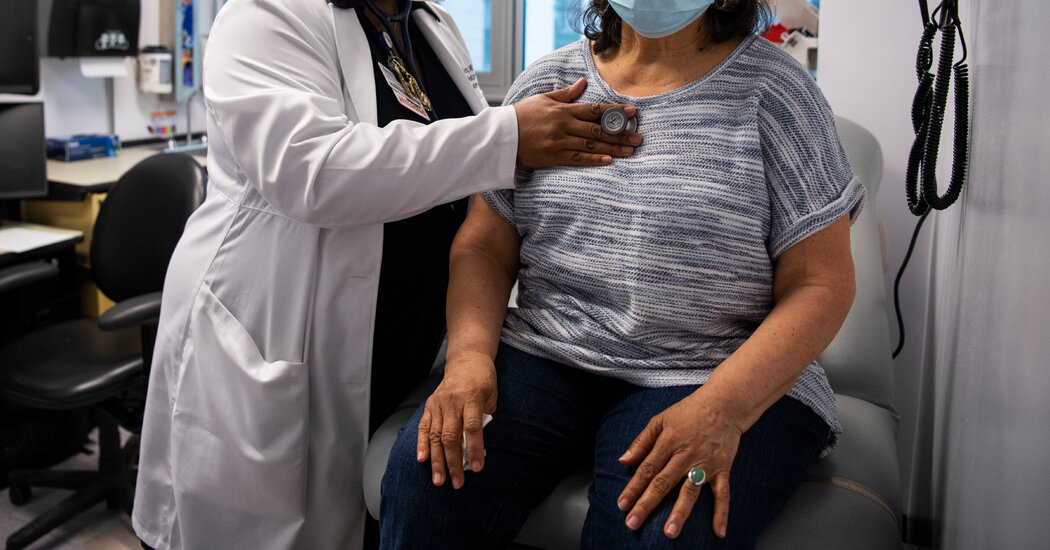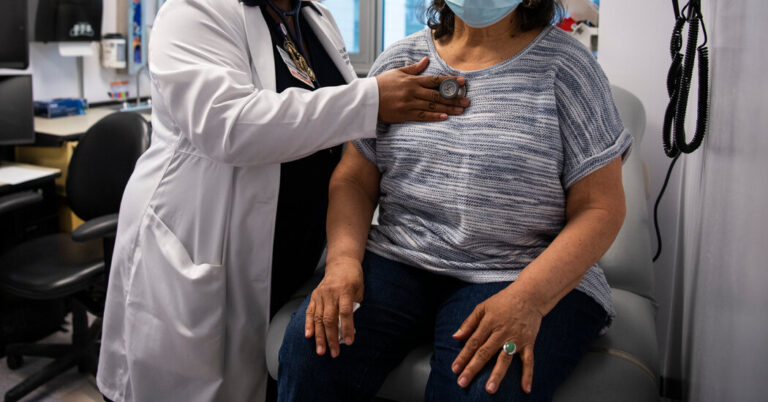After a protest from scientists and experts, the federal officials on Thursdays said they would restore funding to the women's health initiative, one of the greatest and most long studies on the health of women ever conducted.
The results of the Whi and its controlled randomized studies have changed medical practices and contributed to modeling clinical guidelines, preventing hundreds of thousands of cases of cardiovascular diseases and breast cancer.
“These studies represent critical contributions to our best understanding of women's health,” said Emily G. Hilliard, spokesman for the Department of Health and Human Services.
“Now we are working to completely restore funding to these essential research efforts,” he added. The National Institutes of Health “remains deeply committed to making public health advance through a rigorous search for Gold Standard and we are taking immediate measures to guarantee the continuity of these studies”.
The Whi, which began in the 90s when few women were included in clinical research, enrolled over 160,000 participants throughout the nation. It continues to follow around 42,000 women, monitoring data on cardiovascular diseases and aging, as well as fragility, loss of vision and mental health.
The researchers hoped to use the results to find out more about how to maintain mobility and cognitive function and slow loss of memory, detect cancer previously and predict the risks of other diseases.
HHS had informed the leaders of the research team that would interrupting contracts for the Regional Centers of the Whi in September, although the clinical coordination center, based at the Fred Hutch Cancer Center in Seattle, would have been financed until at least January 2026. Starting from Thursday evening, the investigators had not been informed that the subsidies were restored.
Senator Patty Murray, Democrat of Washington, said that closing the process would be “a devastating loss for women's health research”.
Not only did the initiative led to great progress in women's health, “has paved the way for a generation of researchers focused on women's health – who has long been neglected and underfined,” said Murray.
The Whi included a series of controlled randomized studies and has contributed to over 2,000 research articles. But it is probably known for a study on hormonal replacement therapy that was abruptly interrupted in 2002, after investigators discovered that elderly women who have taken on a combination of estrogen and progestogen have undergone a small but significant increase in the risk of breast cancer.
Until then, it is believed that hormonal replacement therapy protected women from cardiovascular diseases. But the study discovered that even if the hormonal combination has reduced the colon -receptor cancer and hip fractures, it has put women at greater risk of heart attacks, strokes and blood clots.
Dr. Joann Manson, one of the main long -term investigators of the study and professor of medicine at the Harvard Medical School and Brigham and Women's Hospital, defined the announcement of the “excruciating” financing cuts.
The original decision to cut the funding, he said, was disconcerting, given declarations by Robert F. Kennedy Jr., secretary of the nation health, on the importance of reducing chronic diseases in America.
“There is no better example of the scientific impact of the research on the prevention of chronic diseases than the Whi,” said dr. Manson.
The lessons learned from the hormonal study led to enormous savings in health care costs, they found that researchers – about 35 billion dollars between 2003 and 2012, according to a study, due to the number of cancer cases and cardiovascular diseases that had been avoided. For each dollar spent for the Whi, $ 140 have been spared.
A randomized study conducted by where examined the impact of a low fat diet, rich in fruit and vegetables. Although researchers initially found a reduction only in ovarian cancer, long-term follow-up has shown that the diet has also reduced the deaths to breast cancer.
Another football and vitamin D study discovered that the supplements have provided a modest advantage to preserve bone mass and prevent hip fractures in elderly women, but have not prevented other fractures or colon cancer.
The results influenced medical guidelines, which currently do not recommend all women to habitually take supplements.
The participants in the initiative are now 78-108 years old and some scientists have admitted that a discussion could be made to close the process. But in general careful planning is given to the closure of such a large and large study.
“There is still so much that we have to learn,” said Garnet Anderson, Vice President Senior and director of the public health sciences division at the Fred Hutch Cancer Center and a main investigator of the initiative.
“Nobody has ever studied 13,000 women over the age of 90 to find out: what are their health needs? How to live such a long and health life?” he said. “We would like to know the secrets of success for healthy aging.”
One of the reasons why the study was started in the 90s was that there were a lack of information and research on women's health and few tests on which to base clinical recommendations, said Marian Neuhouser, who directs the prevention program of Cancer at Fred Hutch Cancer and is president of the Whi Stering Committee.
“Women are half of the population,” said dr. Neuhouner, “but had not been included in the research. They were mainly men and the results were so -called extrapolated to women”.





